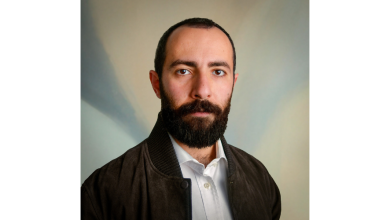The death of a loved one is always difficult, and when disagreements arise over the distribution of their estate, emotions can quickly escalate. Family members sometimes challenge an estate, questioning the validity of a will, the actions of an executor, or the fairness of distributions. These disputes can complicate probate, delay asset distribution, and create lasting tension within families. Understanding the process, potential outcomes, and how to protect your rights is crucial.
Why Family Members Challenge an Estate
Challenges often occur when heirs feel the decedent’s intentions weren’t fully respected or when they suspect wrongdoing. A family member may contest an estate for several reasons: they believe the will was executed under duress, that the deceased lacked mental capacity, or that another party exerted undue influence over the decedent. Sometimes, heirs question whether the executor is acting impartially or properly managing the estate’s assets.
Even when a challenge is legitimate, the process can become emotionally and legally complex. These disputes are rarely straightforward because probate courts must balance the decedent’s stated intentions with the claims and evidence presented by family members.
Filing a Challenge
When a family member decides to challenge an estate, they typically file a formal objection in probate court. This objection must outline the reasons for disputing the will or the administration of the estate. The court then notifies all interested parties, including beneficiaries and the executor, and sets a schedule for responses, evidence submission, and hearings.
Because probate law is procedural, timing and documentation are critical. Failing to meet filing deadlines or properly present evidence can result in the challenge being dismissed, even if there are legitimate concerns.
Investigating the Claim
Once a challenge is filed, evidence gathering becomes central. This can include reviewing the decedent’s medical records to establish capacity, examining financial statements to uncover potential mismanagement, or obtaining witness statements from family, friends, or advisors familiar with the decedent’s intentions. In some cases, courts may allow the use of forensic accountants or other experts to trace transactions and verify the proper handling of assets.
Ted Reuter, Portland Probate Estate Litigation Lawyers at Reuter Corbett, explains, “Estate challenges often involve complex interactions between legal and family dynamics. Having experienced counsel can help navigate these disputes efficiently, protect your rights, and reduce unnecessary conflict.”
Resolving the Dispute
Not all estate challenges proceed to a full trial. Many are resolved through negotiation or mediation, where the parties work with a neutral third-party mediator to reach a mutually acceptable agreement. Mediation can preserve family relationships, reduce costs, and shorten the resolution timeline.
If negotiation fails, the matter moves to trial. During probate court trials, both sides present evidence and witnesses. The judge evaluates the validity of the will, the conduct of the executor, and any allegations of undue influence, fraud, or incapacity. Court rulings can lead to adjustments in asset distribution, removal of an executor, or even invalidation of portions of the will.
The Emotional and Financial Impact
Estate challenges are rarely just legal matters — they are deeply emotional. Families often experience prolonged stress, strained relationships, and disagreements that can linger long after the dispute is resolved. Financially, these disputes can delay access to funds, increase legal costs, and reduce the net value of the estate due to attorney fees and court costs.
Navigating these challenges requires both a clear legal strategy and careful emotional management. Effective counsel can help you stay focused on protecting your interests while minimizing conflict and expense.
Protecting Your Rights
If you are a beneficiary, executor, or potential heir facing a family challenge to an estate, your first step should be to seek experienced probate counsel. A knowledgeable attorney can help you understand your rights, gather necessary evidence, and develop a strategy to resolve the dispute. Whether through mediation, negotiation, or trial, legal guidance ensures that your position is protected and that the decedent’s intentions are honored to the fullest extent.
Common Mistakes to Avoid When an Estate Is Challenged
When a family member challenges an estate, even well-intentioned actions can backfire if not handled carefully. One common mistake is responding emotionally rather than strategically. Reacting impulsively — such as confronting the challenger directly or posting about the dispute publicly — can escalate tensions and even influence the court’s perception of your credibility.
Another mistake is failing to maintain thorough documentation. Probate courts rely heavily on records to verify claims. Without organized financial statements, correspondence, or evidence of the decedent’s intentions, it can be difficult to defend against allegations of mismanagement or undue influence.
Some executors inadvertently violate their fiduciary duties by making premature distributions, failing to notify all heirs, or mishandling assets. Even seemingly minor oversights can give challengers a legal foothold and complicate the resolution of the estate.
Finally, waiting too long to involve an experienced probate attorney can limit your options. Early legal guidance ensures that deadlines are met, evidence is preserved, and the estate is administered according to law, reducing the likelihood of prolonged litigation or financial loss.
By avoiding these pitfalls and taking proactive steps, heirs and executors can strengthen their position and navigate estate challenges more effectively.
Wrap-Up
Challenges to an estate by family members can complicate probate, delay distributions, and create lasting familial tension. Understanding the process, anticipating the possible outcomes, and working with experienced legal counsel are key to navigating these disputes successfully.
By addressing challenges strategically and proactively, heirs and executors can protect their rights, uphold the decedent’s wishes, and ultimately resolve conflicts in a way that balances both legal and emotional considerations.




